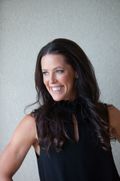You want to be happier. Of course you do. But what does that mean? Psychologists often refer to happiness as “subjective well-being.” But that’s not really helpful to you other than to communicate the idea that it is a personal definition for each of us.
Can we come up with a more meaningful, tangible way to bring the idea of happiness to life?
What does it mean to life a full life? Certainly, it doesn’t mean one that is just a full calendar with lots of stuff to do. The concept of “full” here has more to do with an expansive sense of connection to your own experience in your own life and to the world around you.
A “full life” is when the three domains of happiness below merge. Happiness, or a full life, is thus composed of a simple formula:
Happiness (a Full Life) = Pleasant Life + Engaged Life + Meaningful Life
- Pleasant Life = emotional contentment
- Engaged Life = connection in work, relationships and hobbies
- Meaningful Life = living with a sense of purpose and value
It is important to note that the emotional contentment of a “Pleasant Life” is not referring to a shout-it-from-the-rooftops enthusiasm, but rather a sublime sense of internal satisfaction and a kind of peace.
The trick is that we can’t get happiness from only one of the three parts of the formula. We have to have some contribution from all three domains. So how do we move clients to a place of increase in all three areas?
Here are some sample questions to generate individual-specific responses in each area.
Pleasant Life
Every day presents both pleasant and unpleasant experiences. The human brain is hardwired to focus on negatives (this is an essential survival skill, not a weakness). But this tendency, if left unchecked, can render positives invisible and make the negatives seem monumental. All of these strategies direct attention toward positive experiences, which can get lost amidst the challenges of day-to-day life.
Optimism Building: “Tell me about a time when you had the character strength to successfully meet a challenge.”
Gratitude Spotlight: “When was the last time someone randomly did something kind for you? When was the last time you randomly did something kind for someone else?”
Engaged Life
Activity Engagement: “Tell me about a time when you were using a personal strength or ability and got so lost in what you were doing that you lost track of time.” (Note: This may or may not be physical in nature.)
This experience of full absorption into an activity (when time flies) is the essence of the idea of “flow.” Flow is maximized when skills and the challenge presented are well matched.
Strengths Date: Have a close friend or family member identify three character strengths and then plan a time and event where those strengths will be used.
Meaningful Life
Gift of Skills: “Tell me something you are excellent at doing.” Use the information provided to develop a plan for using the strengths to benefit others.
Fun Paid Forward: Plan two activities: one that is fun for you and one that is fun for someone else. After doing each activity, note how the experience improved a sense of self.
All of these strategies are derived from the field of positive psychology, which is distinctly different than general psychology. Positive psychology seeks to shine a light on what works, what is good and what is enjoyable in life. It is an idea more than a formal field of study. As such, it can be embraced and employed by anyone seeking an enhanced experience of life for themselves and those they may lead.
This is the essence of coaching—it seeks to bring out strengths and abilities that already exist within us, but we sometimes forget about or lose sight of in the raging river of day-to-day life.
For more information and detail on the ideas presented here, see the work of Martin Seligman in the Authentic Happiness Coaching model at www.authentichappiness.org. You can use various questionnaires to uncover details of the happiness formula for yourself and others, including Emotion Questionnaires for the Pleasant Life; Engagement Questionnaires for the Engaged Life; and Meaning Questionnaires for the Meaningful Life. For expanded study of these topics with CECs, see the ACE Behavior Change Specialist course, and, specifically, pages 29-30 in the manual.




 by
by 




 by
by